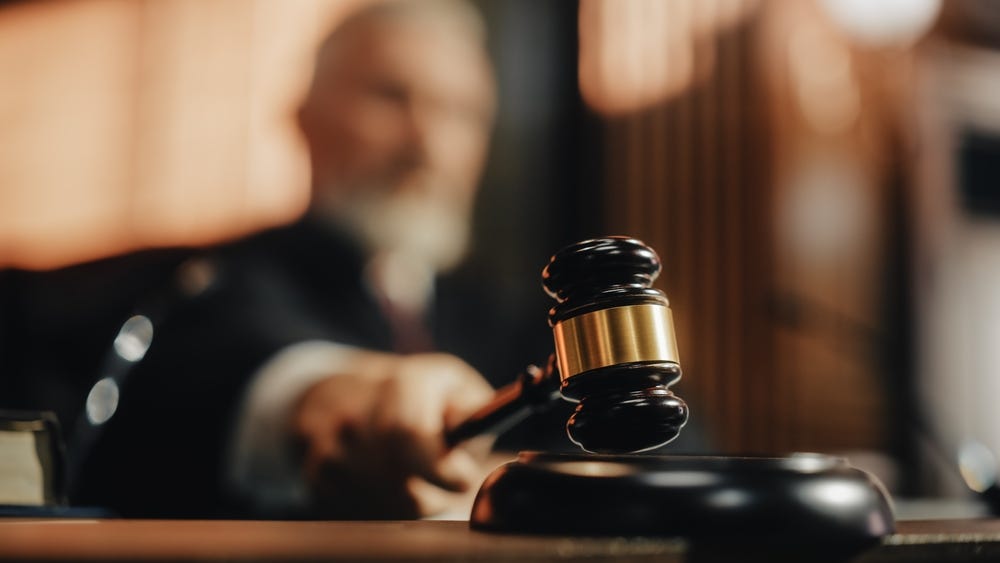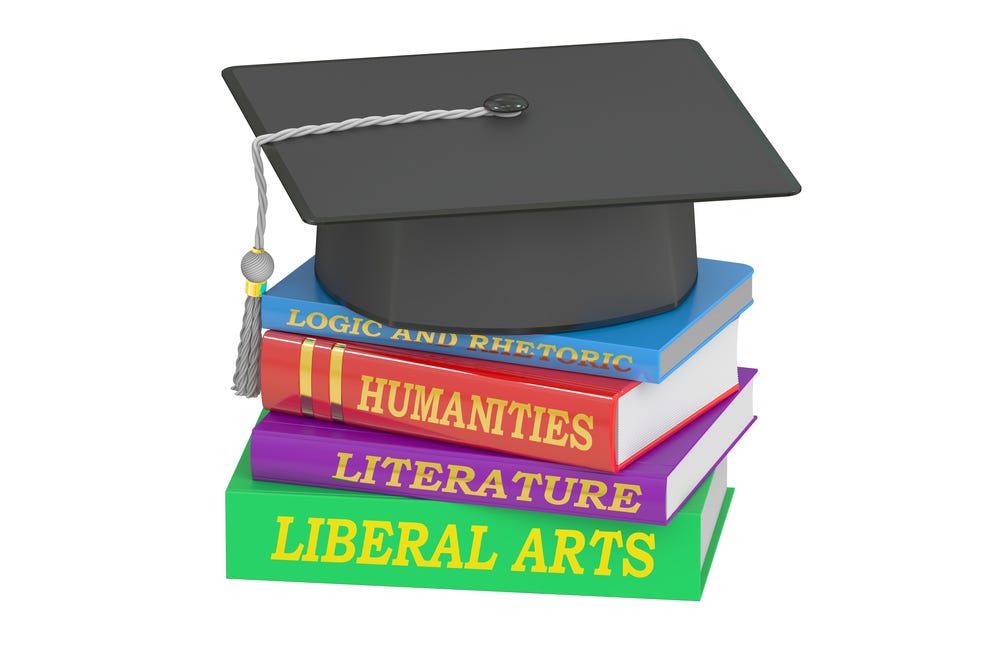E-Pluribus | September 26, 2023
One cheer for cancel culture; DEI and the courts; and what makes 'liberal arts' liberal.
A round-up of the latest and best writing and musings on the rise of illiberalism in the public discourse:
Ryu Spaeth: Cancel Culture Grows Up
The critiques of “cancel culture” were never meant to downplay the need for accountability or responsibility for one’s actions and words. Instead, it has more to do with the unfair and drastic consequences that often result from pure misunderstanding. At New York Magazine, Ryu Spaeth walks through several recent controversies and gives his take on how the public may be getting better at sorting through such incidents.
My favorite social-media controversy of recent vintage was a September 15 post on X (the rebranded Twitter) by the esteemed Japanese novelist Haruki Murakami that read, “As a writer, you can write as much as you want until forty or so, while youth is on your side. But after that, it’s common for people to lose energy, and their writing suffers as a result. Generally speaking.” Many of those on the wrong side of that magic number took grave offense.
[ . . . ]
The problem was that Murakami had said no such thing — or not really. The account under his name is a bot that spews Murakami content (photos of his work desk, koanlike reflections, cat memes), and in this case, it had mangled some benign remark he had made to Uniqlo’s LifeWear magazine about taking up running to maintain his energy in his old age. The dark cloud of fury and indignation that swirled around this stray comment, the hundreds of accusations that this 74-year-old man did not know what it was like to be a woman or a poor person or, uh, an elderly artist, and the presumption that anyone should care what Haruki Murakami thinks about this subject in the first place — all seemed indicative of where the conversation around identity politics has ultimately landed, so much heat and light surrounding an empty core.
It’s wonderful to imagine Murakami being completely oblivious to this storm raging in the online Anglosphere as he putters around his sumptuous house outside Tokyo and writes his umpteenth novel about listening to jazz and eating spaghetti. But if this incident was evidence that senseless mobbings still occur with disheartening regularity, there was also proof that very same day that we have, in the aggregate, grown more adept at sifting through who is worthy of cancellation, who is merely distasteful, and who should be left to their writerly devices. After many years in action, maybe cancel culture is finally growing up.
While hordes of Twitter users were trying to shame Murakami, The New Yorker reported that Hasan Minhaj, the former host of the Netflix current-affairs show Patriot Act and a leading candidate to succeed Trevor Noah as the anchor of The Daily Show, had fabricated stories about being a target of discrimination. That morning, the New York Times published an interview with Rolling Stone founder Jann Wenner in which he divulged that he had not included any interviews with Black or women musicians in his new book, The Masters, because “none of them were as articulate enough on this intellectual level.”
[. . .]
Wenner’s cancellation was immediate and uncontested. He was booted from the board of the Rock & Roll Hall of Fame, which he had helped found. He was denounced by his own son Gus, who is the CEO of Rolling Stone: “I want to be clear, his statements as reported do not represent my beliefs, or the values, practices, and mission of Rolling Stone.” True, the magazine is still being run by a Wenner, which is kind of how patriarchy works. But the father’s downfall suggests that a consensus has formed on the fraught issue of cancellation, that it is perfectly acceptable for some dinosaurs to be laid to rest in Montauk and never heard from again.
Now Minhaj. The New Yorker reported that he had claimed in one of his comedy specials that an FBI informant had tried to infiltrate his family’s mosque in California in order to entrap him on trumped-up charges of terrorism. He also claimed that, in the aftermath of a controversial Patriot Act segment, someone had mailed a mysterious white powder to his home that spilled on his daughter, forcing him to rush her to the hospital. None of this happened. The article rather generously frames the issue as being whether comedians like Minhaj are allowed to bend the facts to convey an “emotional truth,” but to my mind it’s a clear case of manipulation — what the writer Jay Caspian Kang called “fabricated oppression porn.” If I were in the audience of Minhaj’s show, I would have assumed he was telling the actual truth, not an emotional one.
Read it all here.
Wenyuan Wu: Taking DEI to Court
While Diversity, Equity and Inclusion (DEI) activists are far from surrendering, Wenyuan Wu writes at Minding the Campus that DEI in academic settings is getting more and more attention from the courts. Pushback is increasing as teachers and faculty are finding their academic freedom threatened by pervasive and invasive DEI regimes.
Public interest law firms, advocates, scholars, and activists are increasingly utilizing litigation to challenge the incorporation of DEI-themed requirements in schools, communities, and workplaces. In August, six professors from the California Community Colleges (CCC) system, represented by the Foundation for Individual Rights and Expression (FIRE), sued their employer for compelling them to make formal commitments to DEI as a requirement of the faculty performance and tenure review process.
[ . . . ]
There seems to be an emerging consensus in the academia on the threats posed by the DEI political litmus test to academic freedom. A 2022 American Association of University Professors (AAUP) survey found that imposing DEI requirements for tenure was an increasingly popular practice, with 45.6 percent of large education institutions and about 15 percent of medium- and small-sized institutions reporting doing so. More alarmingly, 53.5 percent of the schools surveyed have replaced tenure positions with adjunct faculty positions, many of which are contingent upon the applicants’ willingness to demonstrate support for campus orthodoxies.
An Inside Higher Ed analysis, in spite of the platform’s left-leaning outlook on higher education, acknowledges that faculty contracts and tenure reviews contingent upon DEI-themed conformation encourage self-censorship and chill free speech. An article by the center-right American Enterprise Institute (AEI) explains that mandatory DEI statements in higher education “threaten to restrict employment or advancement opportunities for scholars who dissent from the prevailing consensus on DEI-related issues of public and academic interest.” Simply put, forcing professors to embrace politically loaded terms and frameworks in these statements is antithetical to “a free market competition of ideas, which is the hallmark of our nation’s collegiate system.”
Read it all.
Blaine Greteman: What are the liberal arts? A literature scholar explains
Given the evolution of the word “liberal” over the years and the tendency of some conservatives to reflexively question anything connected with it, the term “liberal arts” has become widely misunderstood. The Conversation asked Blaine Greteman, Professor of English at the University of Iowa, to explain.
Contrary to how it might sound, “liberal” in the phrase “liberal arts” has nothing to do with political liberalism. And the “arts” part is not really about the arts as most people understand them, such as painting, dancing and the like.
The “liberal” in “liberal arts” derives from the Latin “liberalis,” meaning “free.” “Arts” comes from Latin “ars”, for “knowledge” or “skill.” The word “artifact” has the same root: something made by human skill or knowledge. “Liberal arts,” in this sense, is education that equips a person for life as a free citizen.
That was how the Roman statesman and philosopher Cicero meant it 2,000 years ago when he became the first on record to refer to a “liberal arts” education. Cicero did this in “De Inventione,” an influential handbook on rhetoric written around 90 B.C. Cicero composed the book as a young man considering the role that public speaking served in the life of a republic.
In his later and more comprehensive work, “De Oratore,” Cicero explained that the full liberal arts education will equip students with a deep understanding of human emotion, skills in literary expression and a “comprehensive knowledge of things,” or “scientia comprehendenda rerum plurimarum.” This is the “education befitting a free person,” or “eruditio libero digna.”
It’s easy to get bogged down in what exactly that comprehensive or universal education entailed for Cicero or his followers in the Renaissance. But “liberal arts” for Cicero didn’t mean some subject, like “art” or “English,” so much as it meant a broad, general education.
[ . . . ]
True freedom, as I see it, is the ability to choose wisely between arguments and theories about how the world works and understand how language can manipulate or elevate us. This is why 17th-century English poet and revolutionary John Milton focused his foundational anti-censorship text, “Areopagitica,” on the civic value of the liberal arts. “Give me the liberty to know, to utter, and to argue freely according to conscience, above all liberties,” Milton wrote.
One of the greatest defenses of the liberal arts in America was written just 37 years after the Civil War by W.E.B. Du Bois. “The Souls of Black Folk” is probably best known today as a groundbreaking work of sociology.
Du Bois also insisted that without access to a complete and comprehensive liberal arts education, Black Americans can never truly be free. To the question, “Shall we teach them trades or train them in liberal arts?” Du Bois answered, “Both.” But he maintained that liberal arts must always be the foundation, because “to make men, we must have ideals, broad, pure, and inspiring ends of living, not sordid money-getting, not apples of gold.”
Read the whole thing.
Around Twitter (X)
Via Colin Wright, the American Anthropological Association and the Canadian Anthropology Society cave to activists:
How can Americans expect the First Amendment to protect them if they don’t even know what it says? Via Nico Perrino at the Washington Examiner:
And finally, the ACLU finds itself in an awkward position:











